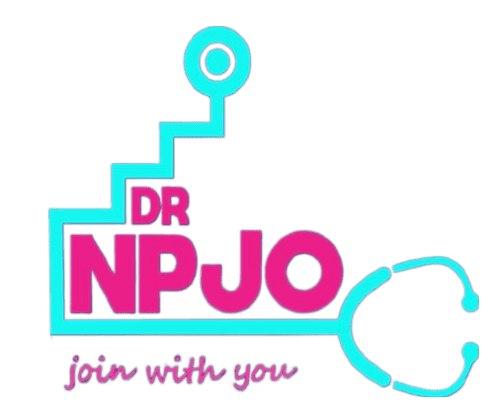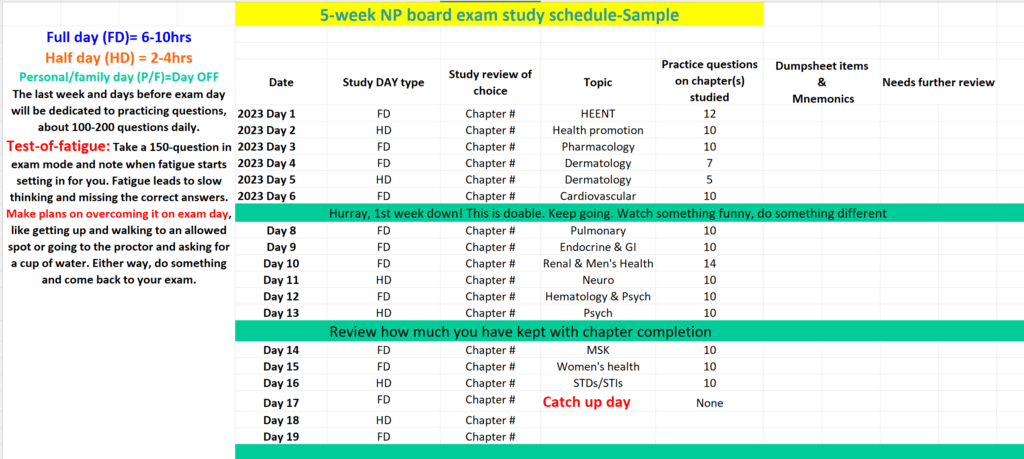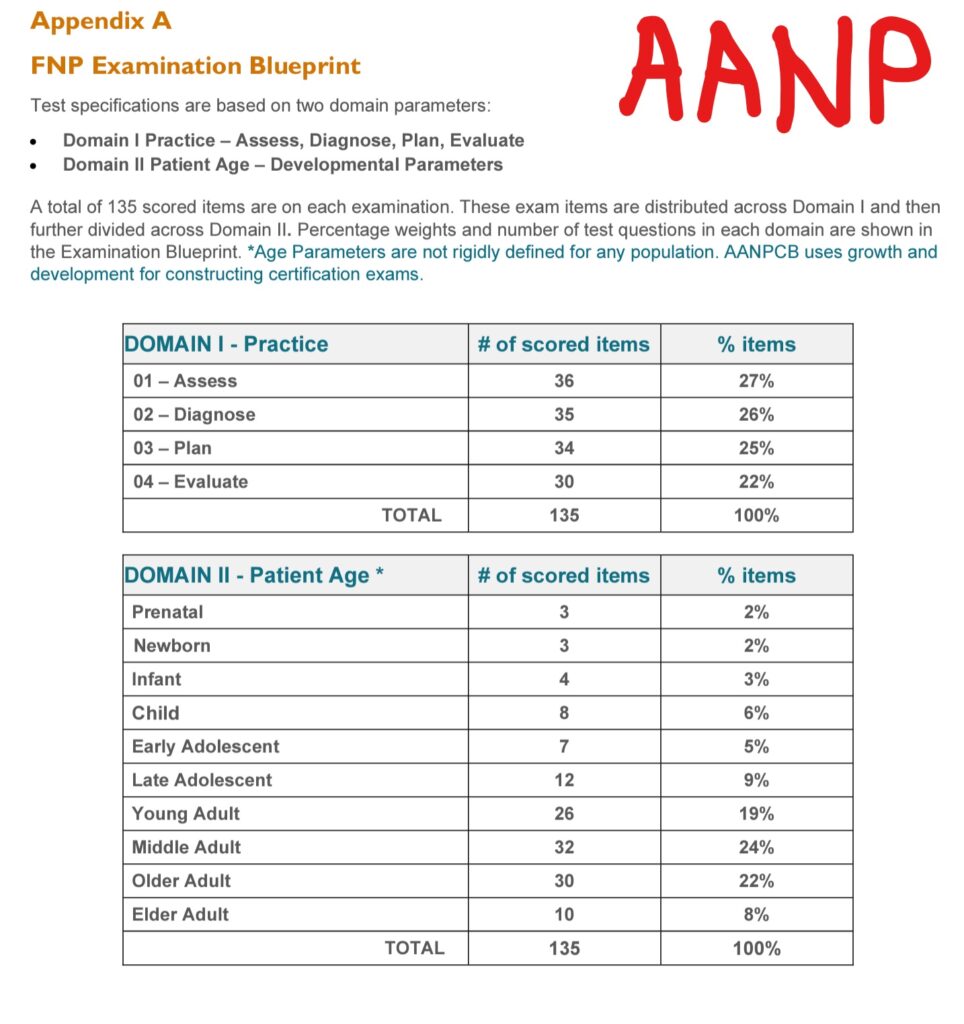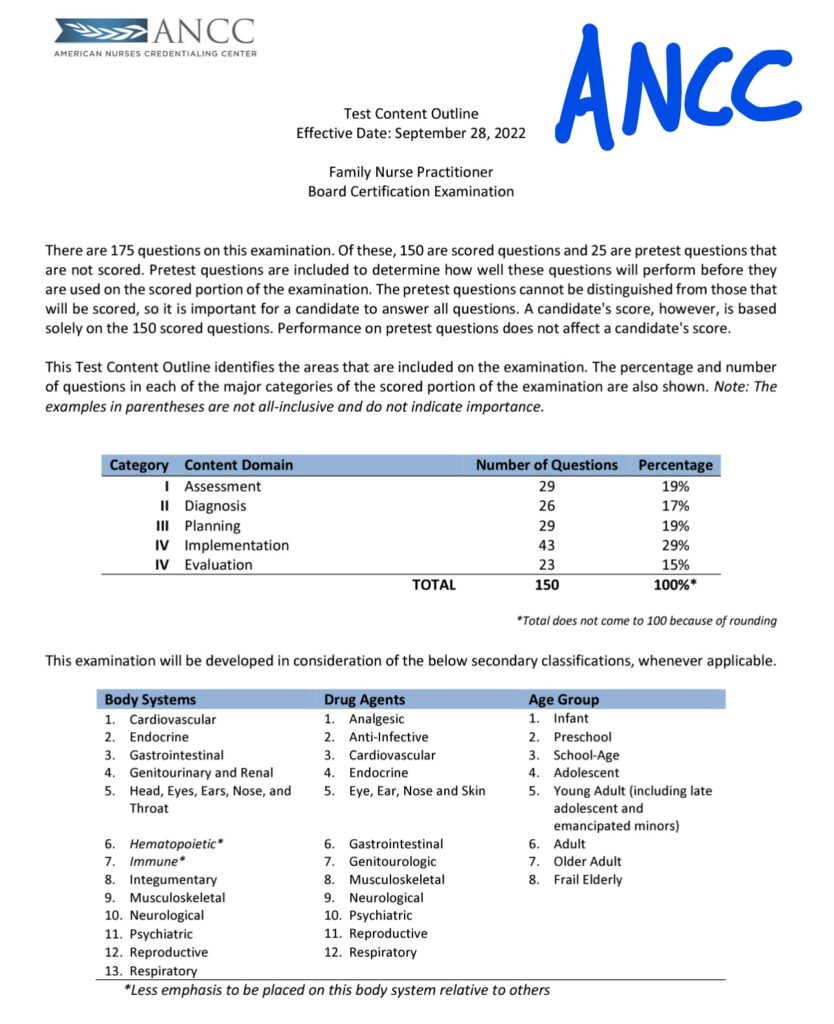Getting through any schooling is stressful; the graduate school has to be exponentially stressful and exhausting. Hats off to you, and congratulations on conquering NP school! What a flight it must have been. Still, you have yet to disembark, and your landing platform is your board exam. This post is one of many that will address several approaches to preparing and passing your NP board exam. Before we proceed, here’s a quick quote by Dr. E-Okoli “There is no version of passing your certification board exam that does not include some sort of studying and sacrifice.” This post will not be for you if you know of such a version.
To pass your exam, you have to allow yourself to flourish in the mindset of a conqueror who can overcome trial and challenges no matter what it looks like. You are going to need re-negotiate your relationship with faith. This gives you the courage to forge ahead despite all the distractions that may surround you.
Collecting your supplies: Review before you proceed
Passing your board exam requires more than just picking up a review book, signing up for a review class, and collaborating with review buddies. It’s everything about you divided into intrinsic and extrinsic factors.
-
Your mind frame plus your mindset: How much do you desire to pass your board exam once and for all?
- How sure are you about starting to study? How stressed are you about you/ what has brought you joy and made you happy and elated recently? Also, what has kept you up, annoyed, and irritated over the past days to weeks? You should consider addressing these items before moving on, even if it means compartmentalizing and storing them in a “box” until you are prepared to face them. Don’t feel forced to address an agonizing situation just yet; timing is everything. You know yourself. Still, some of us run out of “boxes” to store away issues we are not ready or equipped yet to handle.
-
Personal/family obligations:
- This is where you reflect on activities that may not happen without your involvement, like dropping your pet off for grooming, buying groceries, and doing laundry. More importantly, the lives that are dependent on you for survival. Your loved ones will always require and want something from you. Review how much of those activities can be completed without feeling overwhelmed. Identify which can be paused or shared, and identify your resource people. This may be one ultimate time to call in every favor ever promised to you. Put it simply, set-your-house-in-order.
-
Availability of time:
- This may not be as clear as it sounds. How much time do you have in a day VS what can you afford to dedicate to studies? We all have obligations of varying nature and duration; personal, family, friends, work, social media, etc. identify what/who consumes much of your time on a daily to weekly basis, locate every “free” time you have, and find ways to create more time to allocate to studies. For example, if you work 40hrs a week, you may consider temporarily working less and compensating by using vacation time or other available hours from work.
-
Motivation/drive:
- What’s feeding your fire to study at this time, what’s in it for you, and what’s the incentive for you regarding this particular board certification exam? Why study in the first place? Why study now? Or why not? If you have no drive, energy, fire, or reason, I would advise you to explore your emotional well-being; we all struggle, adapt, and exhibit differently.
-
Study time frame:
- How much time can you dedicate to studying in a day or a week, and what timeline are you aspiring to follow until you take your board exam? In other words, how long do you intend to study before taking your board exam? Some suggestions include a 3,4,5,6, or 8-week timeline. Several factors come into play when making that decision, including the amount of information you would need to consume, your motivation, your daily dedicated study schedule, and your study technique or strategy.
-
Barriers:
- I believe in naming names. Even though this has been mentioned indirectly, I think it deserves its dedicated space. Barriers are distractions and can take any form. What stands out as a barrier today may become an asset or advantage tomorrow. The key here is identifying your barriers, what makes them a barrier, and formulating a strategy to co-exist or overcome them. Some barriers may include anxiety, time, fear, work schedule, lack of motivation, cost, poor planning, learning challenges, family/friend(spouse, kids, parents, siblings), friendly boss and colleague, annoying boss and colleague, fatigue, personal routine/upkeep, study pace, social medial, phone calls/text, phone/email alerts/notifications, etc.
Approach to studying
- My best advice on passing your board exam as an NP is to focus on studying to pass your board. This means understanding the certification exam and strategizing a precise and personalized approach for this particular exam. This may not be the right time to study an entire pharmacology or pathophysiology textbook. Investing in strategies that enable you to study smart and pass once and be done is vital! After you pass, you’ll have at least a month to go through credentialing; this will be the opportunity to review the entire textbooks you desire to complete.
Assessment–>diagnosis (truth)–>planning–>implementation–>Evaluate your progress
- Coming out of school means you have gained exposure and knowledge about your specialty or what you studied. However, not everyone was studying as much as they should have while in school. ASSESSMENT calls for reviewing how much base or foundational knowledge you have before you start studying. Diagnosis is the truth stage, where you note your strengths and weaknesses, favorite and least favorite body systems, diseases, and pharmacotherapies.
- Create a study schedule and stick to it with no excuses or easy passes. Here is an example;
- Decide which board exam you want to take and review their syllabus or test content outline. This is beneficial because it helps you understand which areas to focus more or less on. Here are the links for the syllabus for the AANP and ANCC exams. Another advantage is that you get a preview of the number of questions to expect on different populations and systems. See below:
- Find a “study buddy” to share knowledge and help you stay accountable.
- Clarify your learning style to enhance a good memory: Input/storage/retrieval. Some students struggle with retrieving the studied information. Endeavor to utilize as many senses as possible-visual, audio (listening and talking back what you heard), tactile (by handwriting your notes, not typing them), smelling your book (it sounds creepy, but the brain will remember). You must learn some mnemonics for this exam. For example, MR ASS and MS ARDe for the different times that murmurs are heard. MR ASS=Mitral Regurgitation and Aortic Stenosis= SYSTOLE. While MS ARDe=Mitral Stenosis and Aortic Regurgitation Erb’s point=Diastole
- Line up your study resources, such as books and videos. You may consider live or web-based review sessions. I have listed some examples, but you don’t need them all at once:
- Maria Leik’s book. This book has lots of practice questions. She offers live web-based exam review
- APEA: Amelie Hollier. She is terrific and hilarious. There are audio formats in addition to books and in-person reviews.
- Latrina Walden: this is a must. She ties everything together. Purchase the shortest and cheapest video offer and review it the week before your board exam.
- Fitzgerald: Too much info. Some students have commented feeling overwhelmed.
- Sarah Michelle: Also a great resource
- Quizlet: budget-friendly, lots of free stuff to review. Look up AANP or ANCC practice exam.
- Youtube videos: More like Youtube university
- Rosh Review: Best for after you graduate, breaks up processes and pathophysiology via practice questions with detailed rationale. Consider the trial version and see if it is for you.
- Board vitals: For practice exam questions
- Exam Edge: For practice questions. Check with me if I still have lifelong access to their practice questions.
- FNP mastery: For practice question
- world nursing: For practice question, similar to Rosh review.
- For Psych NPs, consider Georgette’s PMHNP certification review
- Additional tips:
- Sarah Michelle and Latrina Walden are good reviews to help you tie everything together. I encourage one month of her crash course, about $120-$160s. However, if cost is an issue, head to Quizlet or Etsy and search for her.
- Take the PSI AANP exam. Those are the retired exam questions from past years. Gives you a good feel for the format and experience. If cost is an issue, go to Quizlet and search for “PSI EXAM.” Those are precisely what you would have paid for on the site. Review as many as you can.
- Create dump sheet items. This will include those items that refuse to stick. You have to cram them, and once when you get in the exam, you will be provided a pen and paper; just “dump” those crammed items there before you start your exam—examples, milestones, screenings, T score, etc.
- Additional tips:
- Look up every item you do not understand; it helps make learning stick more to memory.






